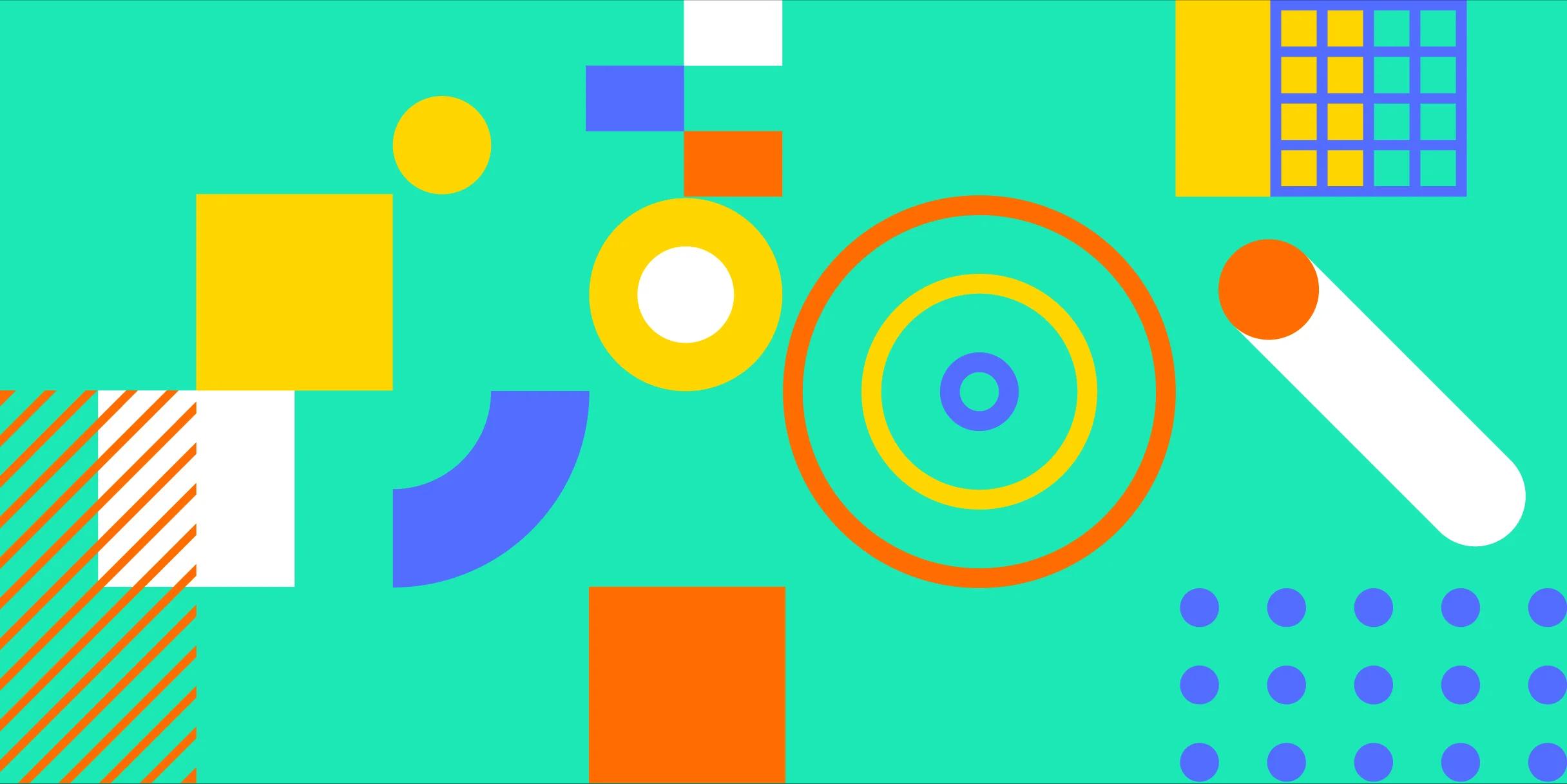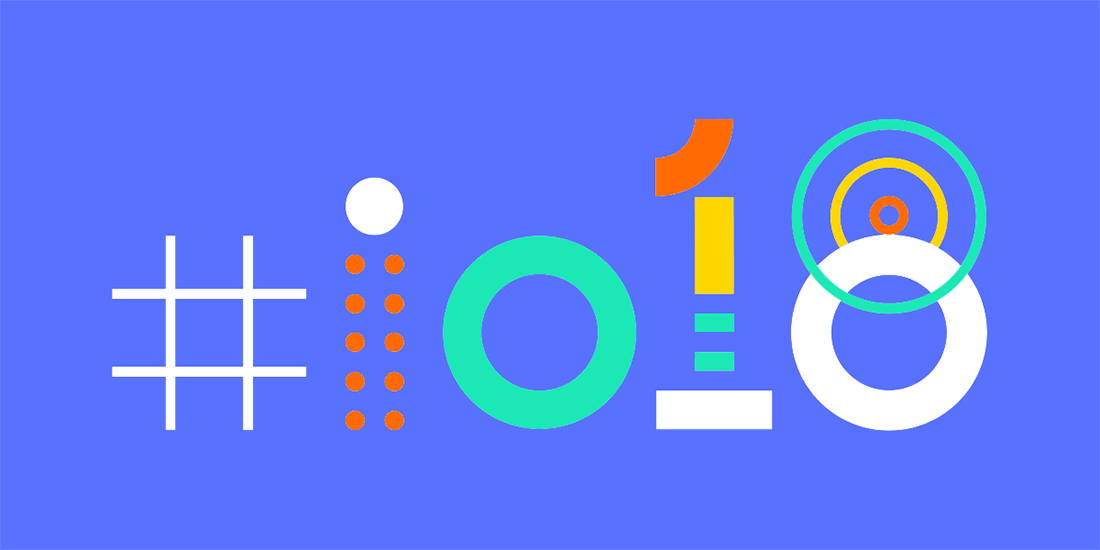
I/O 2018: Our Definitive Guide to Design
The talks, workshops, and app reviews you won’t want to miss
Welcome to Google Design’s #io18 coverage—your resource for everything design-related during Google I/O. In the guide you’ll find info on office hours, in-person app reviews, and hand-picked design talks on everything from design for inclusion to best practices for designing AR applications. If you're on the ground at I/O, come say 'hi' at the Design & Accessibility Dome. We’ll add more links and videos before, during, and after I/O, so stay tuned.
Design Schedule
Please note, all listings Pacific Time
Tuesday, May 8
- 10:00 AM: Keynote Amphitheater
- 12:45 PM: Developer Keynote Amphitheater
- 2:00–3:00 PM: Customize Material Components for your product Learn how to develop expressive digital experiences by customizing Material Components for Android, iOS, web, and Flutter. Speakers: Rachel Been, Richard Fulcher, Josh Estelle Stage 6
- 5:00–6:00 PM: Build great Material Design products across platforms Come learn how to streamline your cross-platform development with Material Design’s new tools and open-source code—for Android, iOS, web, and Flutter. Speakers: Nick Butcher, Jonathan Chung, Will Larche Stage 4
- 5:00–6:00 PM: Actions on Google 101 for Android developers Actions on Google is the rapidly growing developer platform for the Google Assistant. In this session, you’ll get an overview of how to start developing Actions with an Android point of view—from practical tips and tricks to pragmatic UX guidance. Speakers: Ilya Firman, Luv Kothari Stage 2
- 6:00–7:00 PM: Designing for inclusion: Insights from John Maeda and Hannah Beachler Inclusive design aims to make technology available and usable for all people. In this talk, John Maeda, creator of the Design in Tech Report and Global Head of Computational Design and Inclusion at Automattic, will share the stage with Hannah Beachler, production designer for Marvel’s Black Panther movie. The duo will discuss ways to design products and services that reach the broadest range of people, as well as Beachler’s worldwide design inspiration for the futuristic African world of Wakanda. Speakers: John Maeda, Hannah Beachler Stage 4
- 6:00–7:00 PM: Progressive Web Apps: Building Bridges to Mobile, Desktop, and Native Progressive Web Apps (PWAs) enable fast, integrated, reliable, and engaging web experiences. Come and learn how browser vendors are enabling developers to use the web to build installable desktop applications and store-distributed mobile apps, as well as how Google is launching its own PWAs at scale. Speakers: Jenny Gove, Pete LePage Stage 1
Wednesday, May 9
- 8:30–9:30 AM: Code beautiful UI with Flutter and Material Design To stand out, apps need to have smooth, motion-rich, customized designs. Watch beautiful UIs come to life in record time with Flutter and the latest update to Material Design. Learn practical topics including: how Flutter’s layout and stateful hot reload can make UI development intuitive and fast, how to go beyond stock widgets to deliver customized interfaces, and how to add motion and animation for delightful user experiences. And the best part: Flutter lets you do this all with a single codebase producing native apps on iOS and Android. Speakers: Will Larche, Mary Xia Stage 7
- 8:30–9:30 AM: Best practices to design AR applications AR is a new medium with an entirely new set of design challenges and opportunities. This session will cover everything Google’s learned so far about AR design, presented as a set of specific best practices. Topics will include volumetric interfaces, object placement, scene understanding, and designing for all users. Speakers: Alex Faaborg, Alesha Unpingco Stage 6
- 11:30 AM–12:30 PM: Challenges and learnings of building for the next billion users Building products and services that work for everyone regardless of where they live, what language they speak, which devices they use, or the network they're connected to presents exciting opportunities and big challenges. Project leads from Tez, Datally, and Files Go—Google products built specifically for the next billion users—will discuss the design and development of unique technologies including Audio QR and Offline P2P connections that address the needs of these users. Speakers: Pankaj Gupta, Nithya Sambasivan, Devesh Sarwate, Josh Woodward Stage 4
- 11:30 AM–12:30 PM: Design Actions for the Google Assistant: beyond smart speakers, to phones and smart displays With Google Assistant's ever-expanding world of touchpoints, developers and designers face new challenges in creating effective and consistent experiences for users. This talk will highlight some key considerations when designing Actions across surfaces, including tips for understanding when and how to leverage visuals alongside voice interactions to create rich, delightful, and conversational experiences. Speakers: Ulas Kirazci, Saba Zaidi Stage 2
- 12:30–1:30 PM: The value of immersive design sprints This discussion will focus on how Google has used immersive research techniques to design solutions for emerging markets, and how those techniques can be extended to any sprint. Learn how to use a combination of research methods—both in the field and at the office—to create relevant, user-validated solutions. In addition, you’ll get tips on how immersive sprints can bring distributed teams together and build empathy for the user. Speakers: Sumier Phalake, Burgan Shealy Stage 7
- 2:30–3:30 PM: Design, machine learning, and creativity Hear from a panel of lead designers at Google on how they approach the design of everything from Google Doodles to the Google Assistant’s personality, wearable devices, and all of Google’s latest hardware products. You’ll also get insights on how designers are experimenting with machine learning in music and art. Speakers: Douglas Eck, Ryan Germick, Isabelle Olsson Stage 3
- 4:30–5:30 PM: How to incorporate what's new with Material Design in your code base Learn how you can add the latest Material tools and components to your existing codebase to quickly improve your product’s design and functionality. Speakers: Lynn Jepsen, Adrian Secord Stage 8
Thursday, May 10
- 8:30–9:30 AM: Building healthy technology Maggie Jackson, a journalist specializing in how technology impacts humanity, will talk with Adam Alter, a professor of psychology at New York University, about why a tech-life balance is important and how designers and engineers can build healthier products. Speakers: Adam Alter, Maggie Jackson Stage 7
- 10:30–11:30 AM: An accessible process for inclusive design Learn how any team can design more inclusively for people with accessibility needs and how Material Design guidelines, tools, and components can help. Speakers: Jen Devins, Bethany Fong, Catherine Idylle, Andrea Wong Stage 5
- 10:30–11:30 AM: Google Pay: Best Practices for Great Payments Experiences Google Pay enables users to speed through checkout with peace of mind. This session will look at how to design a great payment user experience with Google Pay. You’ll learn insights from Google products like YouTube and Google Play, plus case studies and learnings from partners to help improve your payment experiences. It will also cover what you can achieve with Chrome Autofill and Actions on Google Transactions. Speakers: Jenny Gove, Brandon Herring Stage 7
- 12:30–1:30 PM: Measuring Material Design Learn how UX researchers helped test, refine, and evolve the latest Material Design guidance and why it matters to development across Android, iOS, and web. Speakers: Elizabeth Churchill, Michael Gilbert Stage 7
- 2:30–3:30 PM: Creating a persona: What does your product sound like? What is a persona? And how can it reinforce your product's identity? Learn about tools, get tips, and see examples of how well-designed personas can transform voice-enabled interfaces and boost user engagement. Speakers: Walter Brill Stage 7

Design Reviews
Swing by the Design & Accessibility Dome (near Stage 6) for one-on-one design reviews and feedback on your app from the Material Design team. Reviews are reservable on a first-come, first-served basis. Dome F
Tuesday, May 8 Wednesday, May 9 Thursday, May 10
Codelabs
Get hands-on with the latest and greatest Google technologies by trying over 100 brand new, updated Codelabs. Our ready-to-code kiosks have everything you need to try one of our self-paced tutorials, or bring your own machine and take the work home with you. Google staff will be on hand to help if you get stuck. Ahead of the event, test-drive Google’s latest developer products with our online codelabs. They're a great way to dive deeper into the things we'll cover in the technical sessions.
This year, you’ll also be able to try out our first ever Codelab built for designers—to get familiar with Material Design tools and workflows. Dome F
Tuesday, May 8 Wednesday, May 9 Thursday, May 10
Office Hours
UX Writing Get your product reviewed by Google's user experience (UX) writing team, in addition to help with basic product writing strategies, and answers to your questions about brand voice, feature naming, content management, and how writing complements visual design. **Tent E Tuesday, May 8:**6:00 PM—7:00 PM Wednesday, May 9: 8:30 AM–9:30 AM
Material Components for Android, iOS, Web, and Flutter Have questions about creating a reliable development workflow? Want help integrating Material Design Components (MDC) into your Android, iOS, or web product? Come chat with cross-platform experts on Material Design and MDC. Tent E Wednesday, May 9: 9:30 AM—10:30 AM
Designing for the next billion users Creating mobile products for the next billion users (NBU) presents unique challenges for designers and developers. Learn how to embrace a comprehensive mobile strategy from Google's NBU team—so you can make products relevant to more users around the globe. Tent B Wednesday, May 9: 2:30 PM—3:30 PM
Follow our ongoing design coverage on Twitter, and sign up for the Google Design Newsletter.